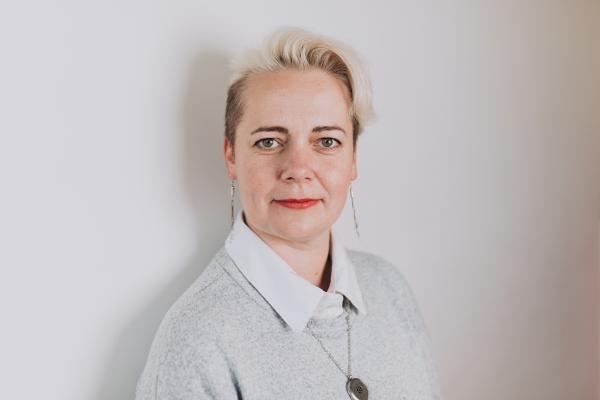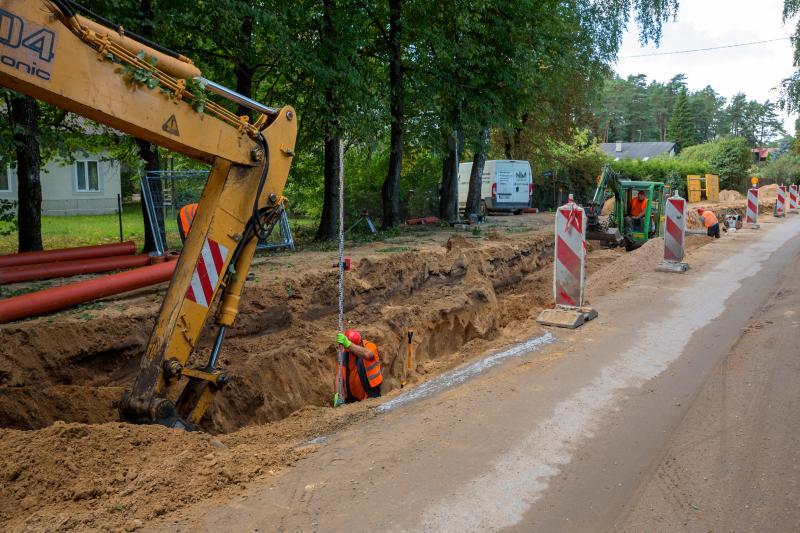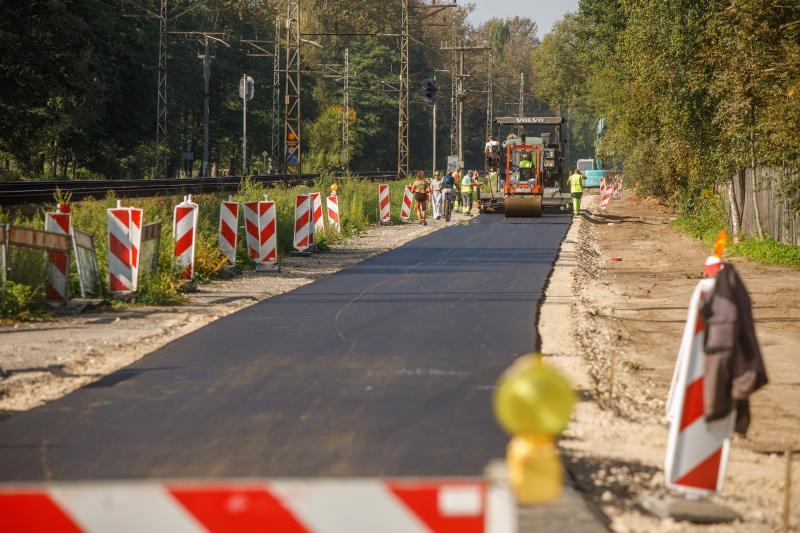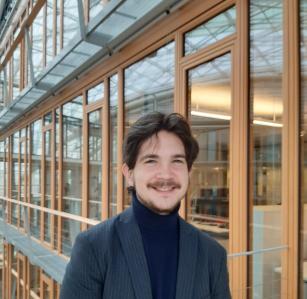La compagnie des eaux de Riga modernise ses infrastructures hydrauliques, améliore la qualité de vie et ouvre la voie à des progrès durables
Au cœur de la Lettonie, la nouvelle station de pompage des égouts située au numéro 101 de la rue Daugavgrīvas est un modèle de progrès. Avec sa technologie de pointe, elle devrait révolutionner la gestion de l’eau de la capitale et promouvoir la durabilité.
Au cours de la seule année 2023, cette station de pompage a traité près de 25 millions de mètres cubes d’eaux usées. C’est l’équivalent de 413 796 wagons-citernes, soit un train qui s’étendrait de la Norvège à Gibraltar. Pour les habitants comme Inese Neļķe, membre du conseil d’administration de l’association du quartier de Berģinieki, l’impact est direct. « Il est pour moi important de savoir le type d’environnement que je laisse derrière moi, peu importe si je reste à Berģi ou si mes enfants vivent ici à l’avenir. C’est ce qui compte pour moi », affirme-t-elle.

La nouvelle station de pompage ne constitue que l’un des nombreux projets en cours visant à transformer le système de gestion de l’eau à Riga. SIA Rīgas ūdens, la plus grande compagnie des eaux des États baltes, est à l’origine de ce changement. Elle vise à renforcer l’infrastructure hydraulique vitale de Riga en étendant l’approvisionnement en eau et le réseau d’assainissement, en augmentant la production d’eau et en remettant en état les réseaux d’assainissement et les canalisations d’approvisionnement en eau. La Banque européenne d’investissement soutient les efforts de l’entreprise au moyen d’un prêt de 60 millions d’euros, signé en juin 2022.
- Découvrir comment l’adaptation relative à l’eau peut aider à gérer les impacts des migrations climatiques et à protéger les économies et les vies
Amélioration de l’approvisionnement en eau et du traitement de l’eau à Riga
Riga abrite un tiers de la population lettonne. La croissance de ses industries, de son agriculture et de sa population met sous pression son système de gestion de l’eau.
C’est pourquoi SIA Rīgas ūdens a lancé un plan ambitieux visant à renforcer les infrastructures hydrauliques de la ville. Ce plan comprend :
- l’installation de vastes réseaux de nouveaux collecteurs et conduites d’eau ;
- l’intégration de stations de pompage dans des quartiers comme Berģi, Imanta et Beberbeķi ;
- la remise en état des puits de la nappe aquifère de Remberģi, l’augmentation de la productivité à la station de pompage pour passer à 700 mètres cubes par heure ;
- la rénovation des collecteurs et des conduites d’eau, garantissant la continuité et la fiabilité des réseaux ;
- l’achèvement d’une nouvelle station de pompage des eaux usées, la rénovation des collecteurs à l’aide de méthodes non destructives et le renouvellement des conduites d’approvisionnement en eau dans des zones critiques ;
- les travaux de reconstruction et d’agrandissement de la station d’épuration de Daugavgrīva.
« Nous sommes parvenus à créer l’un des réseaux d’égouts les plus modernes et les plus efficaces des pays baltes », explique Agnese Ozolkāja, membre du conseil d’administration de SIA Rīgas ūdens. « Grâce à notre travail, 98 % de la population de Riga a accès au réseau centralisé et nous prenons en charge la collecte des eaux usées pour environ 96,5 % de la population de la zone de service de Riga et ses environs.
La société s’efforce d’améliorer le point d’extraction d’eau du lac Mazais Baltezers, qui permet la recharge de la nappe aquifère de Baltezers grâce à des étangs d’infiltration. D’autres efforts de construction sont aussi à souligner dans des quartiers comme Teika et Ziepniekkalns, où des progrès notables ont été enregistrés dans la construction de nouveaux collecteurs et conduites d’eau.
Soutenir les avancées de la Lettonie
Il n’est pas aisé de refondre le système de gestion d’eau d’une ville. Cela met en jeu des infrastructures complexes et des canalisations anciennes. Cela ne doit pas avoir d’incidence sur le quotidien des habitants de la ville. Un autre aspect important consiste à garantir qu’un soutien financier pour le projet soit mis en œuvre avec succès.

SIA Rīgas ūdens a prolongé les conduites d’égouts sur plus de 41 kilomètres et étendu le réseau d’assainissement de 7,7 kilomètres.
Grâce au prêt de la Banque européenne d’investissement, SIA Rīgas ūdens pourra continuer à rénover et à moderniser ses infrastructures de gestion de l’eau.
« Le prêt représente 50 % du coût total du projet et a permis à la compagnie d’accélérer et de mener à bien la mise en œuvre de manière plus efficace », explique Marina Ismaila, chargée de prêts à la Banque européenne d’investissement pour les opérations dans les infrastructures du secteur public, qui a travaillé sur cet accord.
Une eau plus propre, une vie meilleure
Lorsque des quartiers sont raccordés aux réseaux de services collectifs de la ville, les habitants peuvent profiter d’une eau et d’un assainissement de qualité, ainsi que d’un environnement plus sûr et plus propre. Cela réduit aussi la consommation d’eau et les fuites futures.

La nouvelle station contribuera également à réduire la consommation annuelle d’eau de 300 000 m3, soit la moitié du volume du lac Ķīšezers, l’un des plus grands à Riga.
« Les réseaux d’approvisionnement en eau et de traitement des eaux usées apportent des avantages que l’on ne perçoit pas vraiment », déclare Daphne Voss, ingénieure principale dans le domaine de l’eau à la Banque européenne d’investissement. « Ils permettent notamment d’économiser de l’argent en matière de santé publique, de maintenir l’environnement plus propre et de réduire les gaz à effet de serre en traitant mieux les eaux usées. »
- En savoir plus sur une solution fondée sur la nature pour aider à atténuer les inondations en Grèce
